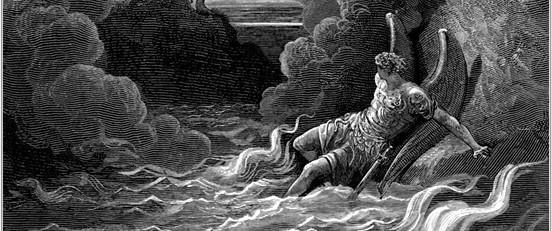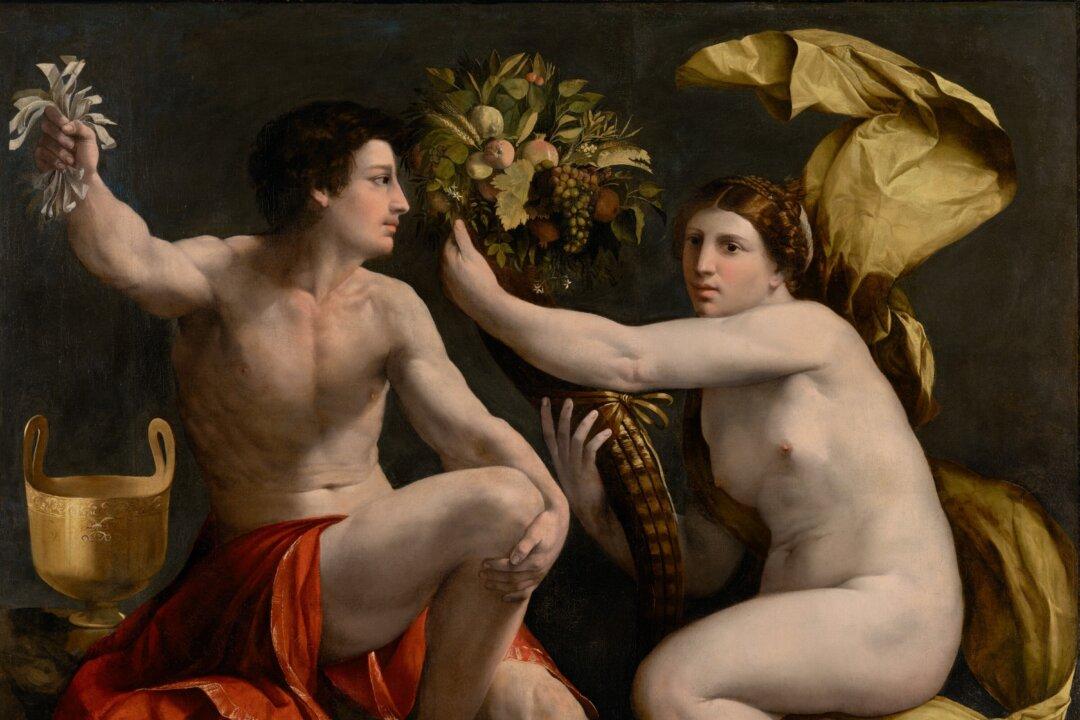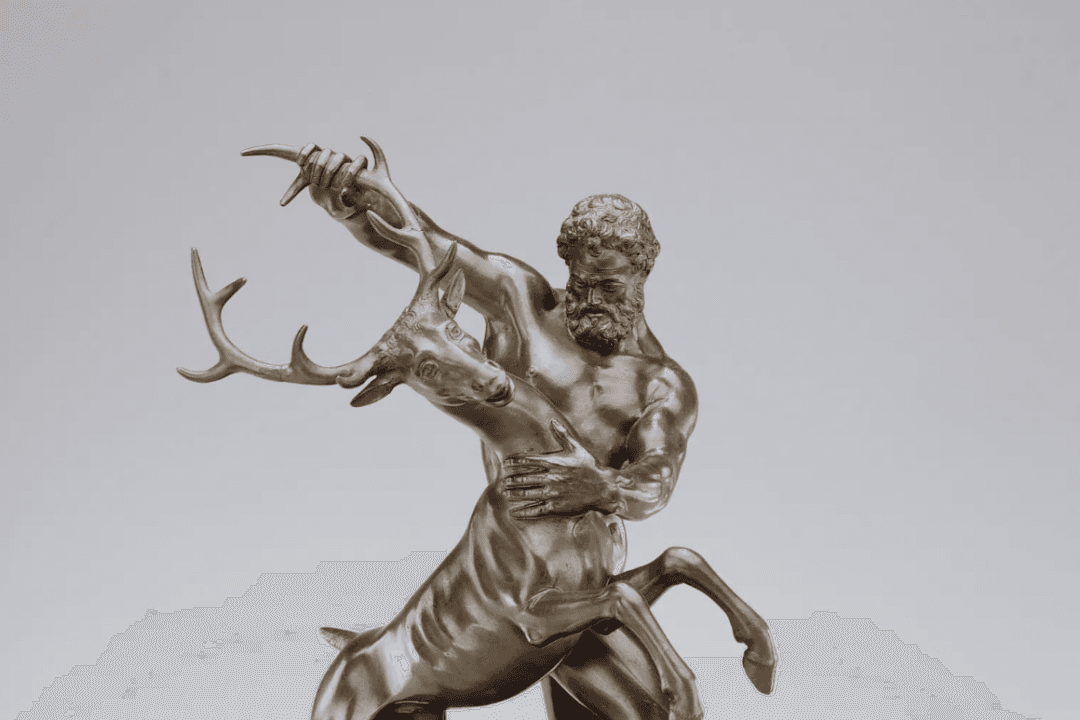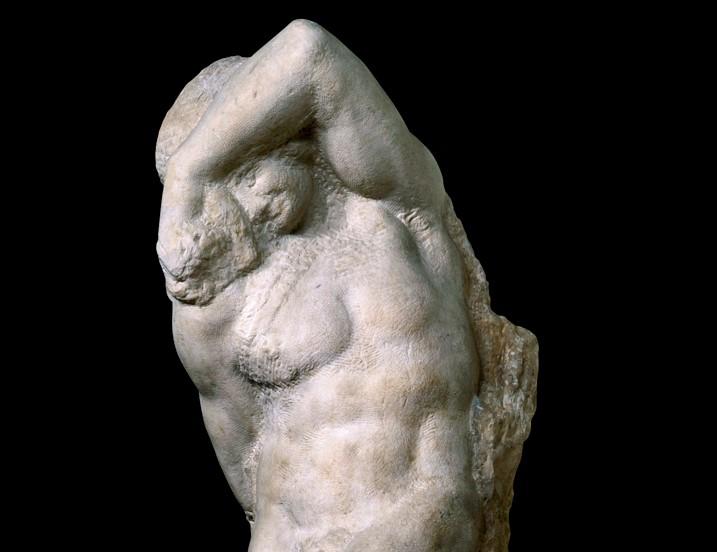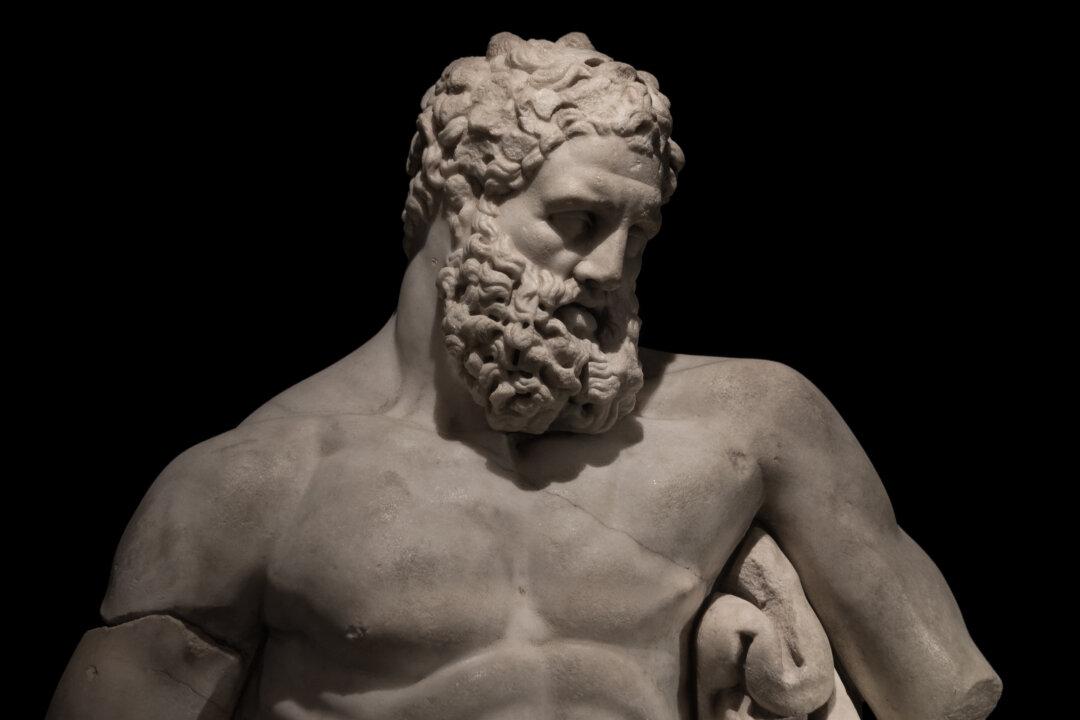After Satan is cast out from heaven for competing with God, he and his army of rebel angels find themselves suffering in hell. It’s not long, however, before Satan—despite the inevitability of losing to God—attempts to rally his troops to continue their battle against God and the heavenly angels.
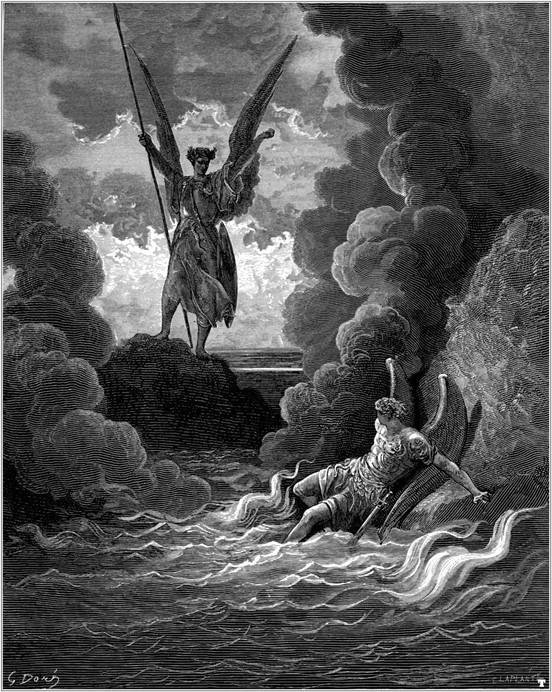
“Forthwith upright he rears from off the pool/His mighty stature,” 1866, by Gustav Doré for John Milton’s “Paradise Lost.” Engraving. Public Domain

